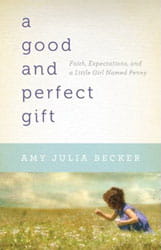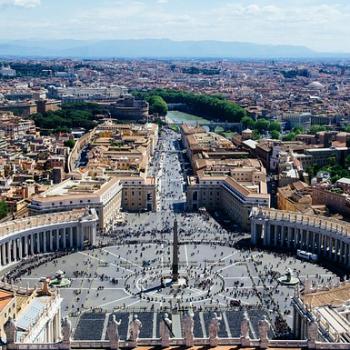I think every human being has both the capacity and the opportunity to be wonderful, and that the best in us emerges as we allow life to transform us—particularly, as we allow pain to slough off the layers of self-protection that shroud our tender humanity and keep us isolated from each other. Again, this isn't easy—in fact it's often terrifying and agonizing, which is why we rarely volunteer for the process. But it comes upon us anyway, in one form or another. None of us can opt out of suffering; rather, our choice is whether to resist or surrender to its power of change.
Parents of kids with special needs often get a crash course in surrender, due to the demands and intensity of the experience. Yet as I write in my memoir, every person walking the earth faces the same fundamental question: will I love, or will I not? Our answer (and it's a perpetual answer, not a one-time event) determines the fate of our potential for wonderfulness.
You write about grief and love being two sides of the same coin. Has Thomas' life continued to draw forth both emotions and realities for you?
After the initial adjustment to Thomas's diagnosis, I thought the hard part was over. I didn't realize (even though experienced parents warned me) that the adjustment process is cyclical rather than linear, and that our expanding love for Thomas brought expanded vulnerability to grief. This became clear when Thomas was diagnosed with autism shortly after his third birthday. It was overwhelming to face the reality of a dual diagnosis—the wrenching questions I explored in my memoir resurfaced in more complex form and the answers needed to be relearned in a different dimension of experience. But our love for Thomas took on new dimensions as well. Now I think of life as a spiral staircase that leads around to the same struggles and the same joys from gradually elevated and expanded perspectives.
________________________________________________________________
Kathryn's questions for Amy Julia
Kathryn Soper: You describe Penny in utero as "this child who had been to places inside me that I had never seen or touched, that I had only begun to feel because of her." As Penny has grown, what are some of those intangible places she has revealed in and to you?
 Amy Julia Becker: It may sound contrived, but Penny has revealed to me a much deeper and fuller understanding of love. Before she was born, I valued intelligence more than almost anything else, which limited my ability to love people who didn't have the same educational background as I did and/or who had different types of intelligence. It also limited my ability to receive love from other people. Penny revealed an intangible and somewhat ugly place of arrogance but she has also, I hope, replaced it with greater humility and a greater capacity both to give and receive love.
Amy Julia Becker: It may sound contrived, but Penny has revealed to me a much deeper and fuller understanding of love. Before she was born, I valued intelligence more than almost anything else, which limited my ability to love people who didn't have the same educational background as I did and/or who had different types of intelligence. It also limited my ability to receive love from other people. Penny revealed an intangible and somewhat ugly place of arrogance but she has also, I hope, replaced it with greater humility and a greater capacity both to give and receive love.
As you identify your seemingly contradictory emotions about Penny's arrival, you note that "people are always trying to downplay the hard part and overemphasize the good instead of letting the tension remain." Why do you think we tend to ignore or avoid such duality? What truths can it teach us?
Disability is like a magnifying glass that shows us all our humanity-in all its glory and all its weakness and need. I think most of us try to avoid acknowledging our own needs and vulnerability, but people with disabilities expose them to us.
At another point in A Good and Perfect Gift, I talk about learning the difference between pity and compassion from Thomas Reynolds, who wrote Vulnerable Communion. Reynolds explains that pity allows us to keep our distance from other people by looking into their lives and saying, "I'm so sorry that's happening to you" when what they really mean is "I'm so glad that's not happening to me." Someone showing compassion might also say, "I'm so sorry," but they would do so as a way of moving towards the person in need.
I think we avoid the complexities and dualities of human lives as a way of avoiding compassion, but when we are willing to enter into the tension of lives that include both suffering and joy, we learn about love and purpose and becoming human.
You wrestled with poignant questions about Penny's nature, such as: "In a God-created universe, what was good and not good about her? And was it different than that which is good or not good in the rest of us?" How would you answer those questions today?
One of my constant questions about disability is whether it happens because something has gone "wrong." Did God create Penny with Down syndrome? Or is Down syndrome simply a mistake in the cosmic order of things? I can give answers that affirm either position, which makes me think my simple duality doesn't work.




